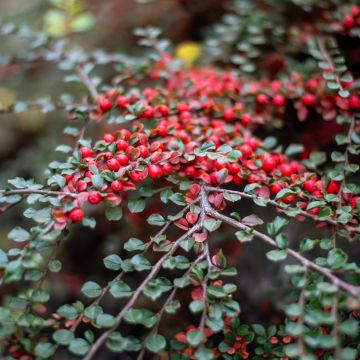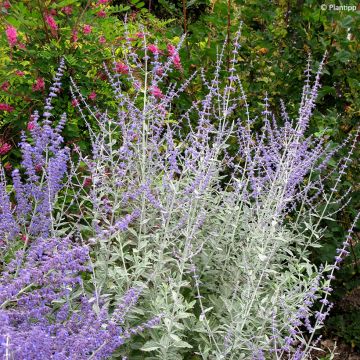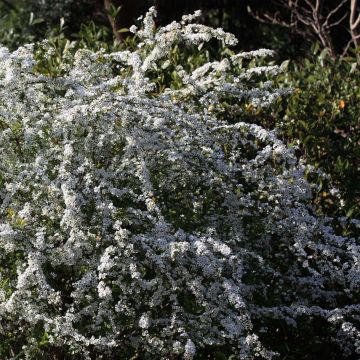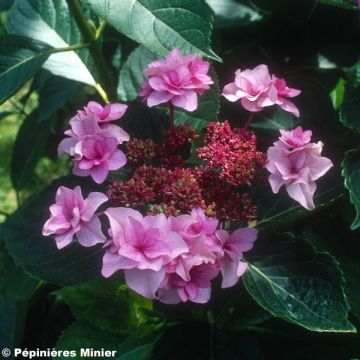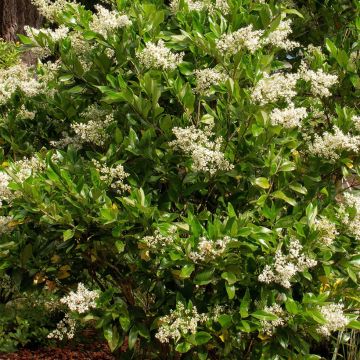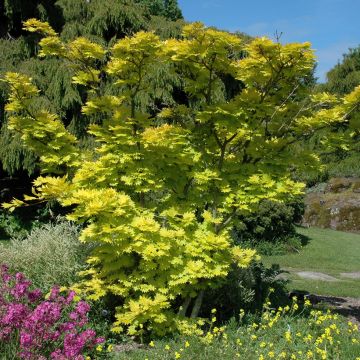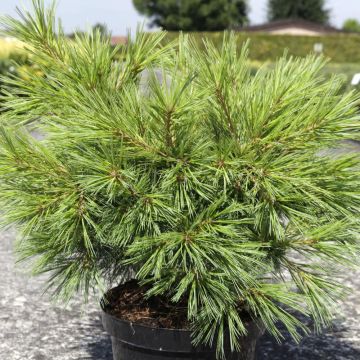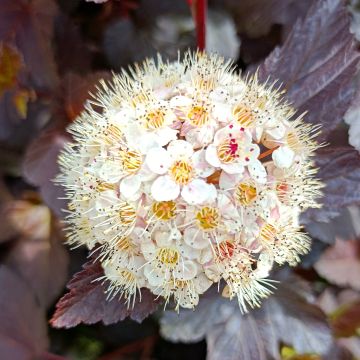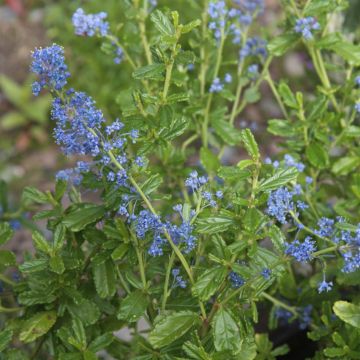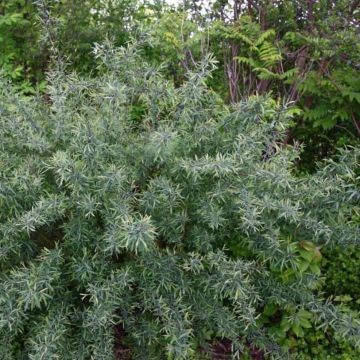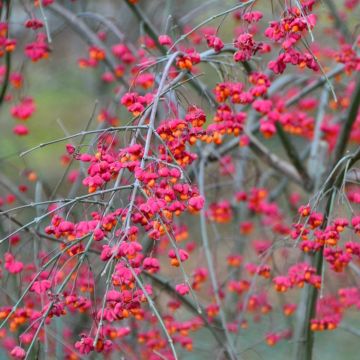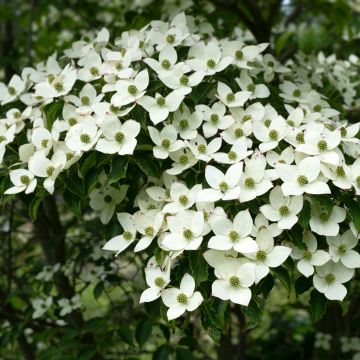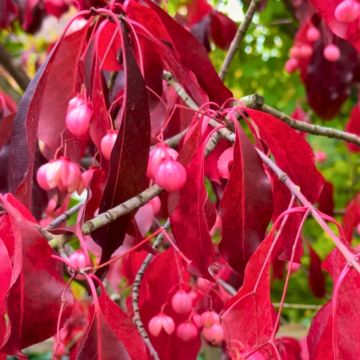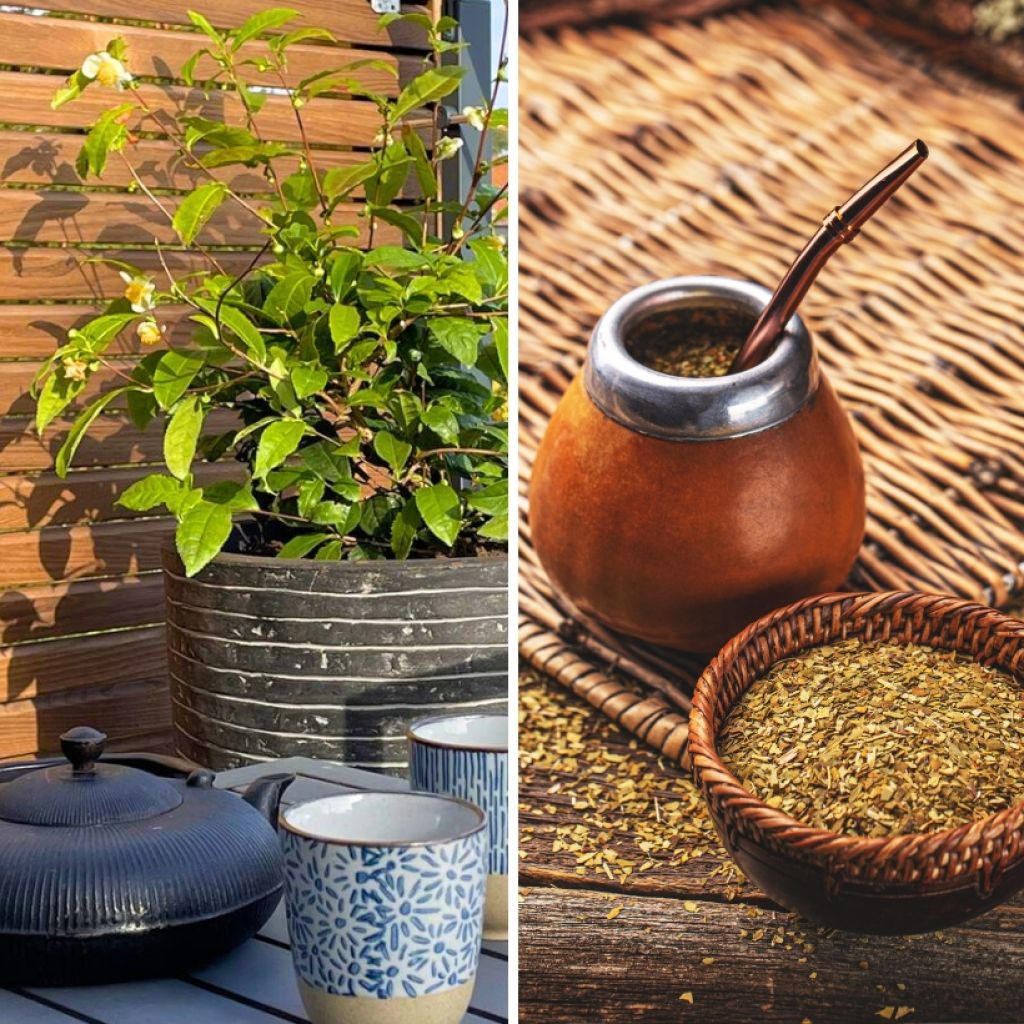

Duo of shrubs for tea and yerba mate
Duo of shrubs for tea and yerba mate
Camellia, Ilex Camellia sinensis Théojardin®, Ilex paraguariensis Garden2cup®
tea, yerba mate, Paraguay tea, Brazilian tea
Special offer!
Receive a €20 voucher for any order over €90 (excluding delivery costs, credit notes, and plastic-free options)!
1- Add your favorite plants to your cart.
2- Once you have reached €90, confirm your order (you can even choose the delivery date!).
3- As soon as your order is shipped, you will receive an email containing your voucher code, valid for 3 months (90 days).
Your voucher is unique and can only be used once, for any order with a minimum value of €20, excluding delivery costs.
Can be combined with other current offers, non-divisible and non-refundable.
Home or relay delivery (depending on size and destination)
Schedule delivery date,
and select date in basket
This plant carries a 24 months recovery warranty
More information
We guarantee the quality of our plants for a full growing cycle, and will replace at our expense any plant that fails to recover under normal climatic and planting conditions.
Would this plant suit my garden?
Set up your Plantfit profile →
Description
This duo of Tea Plants brings together Camellia sinensis Théojardin and Ilex paraguariensis Garden2cup, two large evergreen shrubs known for the infusions made from their dried or roasted leaves. Growing them in large pots limits their growth and protects them from severe frost in winter. The leaves will be harvested from well-developed plants after 3 or 4 years of cultivation. In the era of "homemade", these plants allow enthusiasts to produce their own tea and maté.
The duo consists of:
- 1 Camellia sinensis Théojardin: a variety selected for the aroma of its leaves. This shrub, related to camellias, can reach a height of 2.50 m and a spread of 1 m in open ground. It has shiny dark green leaves that persist throughout the year. Its simple and modest white flowers with a yellow stamen heart, bloom from October to December. It is a plant for acid soil in a mild and humid oceanic climate. Hardiness: -10 °C (at its lowest) in open ground for a mature plant.
- 1 Ilex paraguariensis Garden2cup: a holly native to South America. It is a large evergreen shrub or small tree with tough, dark green leaves. Its discreet spring flowering is followed by the formation of small purple berries. In favourable conditions and in open ground, it can reach a height of 4.50 m and a spread of 2.50 m. Its hardiness does not exceed -8 °C at the lowest for a mature plant in open ground.
Cultivation advice:
These two shrubs thrive in partial shade (no direct sunlight) in a rich, non-calcareous, well-drained soil that does not dry out but is not constantly waterlogged. Also, be careful of drafts and wind. They are cultivated somewhat like camellias and rhododendrons, but they prefer more warmth and are less resistant to cold. Choose pots or containers of sufficient volume (at least 30 litres) with several holes at the bottom. Create a drainage layer using clay balls. Use a mixture of ericaceous soil and high-quality horticultural compost. Water with rainwater if tap water is hard in your area. Use a UAB fertiliser for acid-loving plants.
Although they can withstand negative temperatures, these tea plants will thrive much better if the temperature does not stray much below 20°C. This temperature is roughly equivalent to their original environment. We recommend protecting the shrubs well in winter if you place them outdoors. If grown in containers, they should be overwintered in a conservatory or a slightly heated greenhouse with not too dry air.
Report an error about the product description
Plant habit
Flowering
Foliage
Botanical data
Camellia, Ilex
Camellia sinensis Théojardin®, Ilex paraguariensis Garden2cup®
Aquifoliaceae
tea, yerba mate, Paraguay tea, Brazilian tea
Cultivar or hybrid
Other Shrubs A to Z
View all →Planting and care
Camellia sinensis Théojardin is hardy down to -10°C at its coldest, while Ilex paraguariensis Garden2cup can withstand temperatures down to -8°C at its coldest, provided it is well established and protected from cold winds. They thrive in mild and humid oceanic climates. The greater the temperature fluctuations, the more the bushes suffer and the less they thrive. Cultivating them in large pots is preferable in many regions.
They prefer non-calcareous soil that is rich in organic matter. Slightly acidic forest soil or well-drained clay-silica soil enriched with humus are perfect. In pots, a mixture of ericaceous soil, decomposed leaf compost, and garden soil (if not too calcareous) should be used. Also, add a drainage layer at the bottom of the container. The substrate should be loose, light, and well-draining to allow water passage and root aeration. Clayey, heavy, compact soils should be avoided.
Place your bushes in a location with non-scorching sunlight. They need brightness but cannot tolerate excessive heat from a southern exposure in summer. Also, be careful to protect them from prevailing winds. It is best not to bury the root ball too deeply; cover it with 2 or 3 cm of soil, no more, just enough to prevent drying out. Water generously, then cover the soil with a bark mulch.
Before winter arrives, protect the predominantly surface-developing roots by covering the base with a thick layer of dry leaves mixed with sand or any other insulating material (pine bark, flax or hemp shavings, etc.). In the event of a snowfall, take the time to remove the leaves by shaking the bush, as the snow could burn the foliage and weaken the bush. It is not essential to prune these bushes when planted in the ground. However, it is useful for plants grown in pots. Pruning should be done before the start of the growing season.
Planting period
Intended location
Care
This item has not been reviewed yet - be the first to leave a review about it.
Similar products
Haven't found what you were looking for?
Hardiness is the lowest winter temperature a plant can endure without suffering serious damage or even dying. However, hardiness is affected by location (a sheltered area, such as a patio), protection (winter cover) and soil type (hardiness is improved by well-drained soil).

Photo Sharing Terms & Conditions
In order to encourage gardeners to interact and share their experiences, Promesse de fleurs offers various media enabling content to be uploaded onto its Site - in particular via the ‘Photo sharing’ module.
The User agrees to refrain from:
- Posting any content that is illegal, prejudicial, insulting, racist, inciteful to hatred, revisionist, contrary to public decency, that infringes on privacy or on the privacy rights of third parties, in particular the publicity rights of persons and goods, intellectual property rights, or the right to privacy.
- Submitting content on behalf of a third party;
- Impersonate the identity of a third party and/or publish any personal information about a third party;
In general, the User undertakes to refrain from any unethical behaviour.
All Content (in particular text, comments, files, images, photos, videos, creative works, etc.), which may be subject to property or intellectual property rights, image or other private rights, shall remain the property of the User, subject to the limited rights granted by the terms of the licence granted by Promesse de fleurs as stated below. Users are at liberty to publish or not to publish such Content on the Site, notably via the ‘Photo Sharing’ facility, and accept that this Content shall be made public and freely accessible, notably on the Internet.
Users further acknowledge, undertake to have ,and guarantee that they hold all necessary rights and permissions to publish such material on the Site, in particular with regard to the legislation in force pertaining to any privacy, property, intellectual property, image, or contractual rights, or rights of any other nature. By publishing such Content on the Site, Users acknowledge accepting full liability as publishers of the Content within the meaning of the law, and grant Promesse de fleurs, free of charge, an inclusive, worldwide licence for the said Content for the entire duration of its publication, including all reproduction, representation, up/downloading, displaying, performing, transmission, and storage rights.
Users also grant permission for their name to be linked to the Content and accept that this link may not always be made available.
By engaging in posting material, Users consent to their Content becoming automatically accessible on the Internet, in particular on other sites and/or blogs and/or web pages of the Promesse de fleurs site, including in particular social pages and the Promesse de fleurs catalogue.
Users may secure the removal of entrusted content free of charge by issuing a simple request via our contact form.
The flowering period indicated on our website applies to countries and regions located in USDA zone 8 (France, the United Kingdom, Ireland, the Netherlands, etc.)
It will vary according to where you live:
- In zones 9 to 10 (Italy, Spain, Greece, etc.), flowering will occur about 2 to 4 weeks earlier.
- In zones 6 to 7 (Germany, Poland, Slovenia, and lower mountainous regions), flowering will be delayed by 2 to 3 weeks.
- In zone 5 (Central Europe, Scandinavia), blooming will be delayed by 3 to 5 weeks.
In temperate climates, pruning of spring-flowering shrubs (forsythia, spireas, etc.) should be done just after flowering.
Pruning of summer-flowering shrubs (Indian Lilac, Perovskia, etc.) can be done in winter or spring.
In cold regions as well as with frost-sensitive plants, avoid pruning too early when severe frosts may still occur.
The planting period indicated on our website applies to countries and regions located in USDA zone 8 (France, United Kingdom, Ireland, Netherlands).
It will vary according to where you live:
- In Mediterranean zones (Marseille, Madrid, Milan, etc.), autumn and winter are the best planting periods.
- In continental zones (Strasbourg, Munich, Vienna, etc.), delay planting by 2 to 3 weeks in spring and bring it forward by 2 to 4 weeks in autumn.
- In mountainous regions (the Alps, Pyrenees, Carpathians, etc.), it is best to plant in late spring (May-June) or late summer (August-September).
The harvesting period indicated on our website applies to countries and regions in USDA zone 8 (France, England, Ireland, the Netherlands).
In colder areas (Scandinavia, Poland, Austria...) fruit and vegetable harvests are likely to be delayed by 3-4 weeks.
In warmer areas (Italy, Spain, Greece, etc.), harvesting will probably take place earlier, depending on weather conditions.
The sowing periods indicated on our website apply to countries and regions within USDA Zone 8 (France, UK, Ireland, Netherlands).
In colder areas (Scandinavia, Poland, Austria...), delay any outdoor sowing by 3-4 weeks, or sow under glass.
In warmer climes (Italy, Spain, Greece, etc.), bring outdoor sowing forward by a few weeks.






























